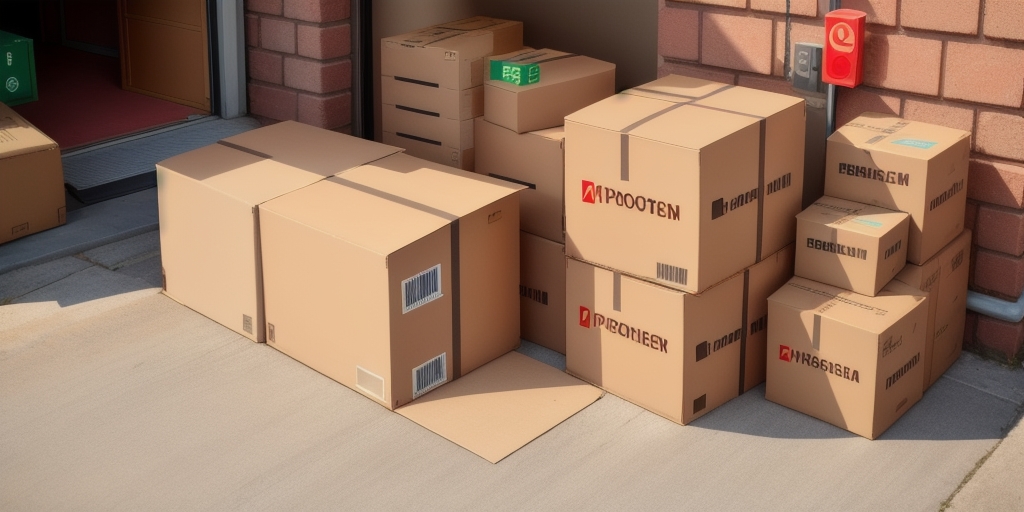Understanding Shipment Exceptions in Delivery Status
In the realm of logistics and shipping, shipment exceptions can significantly impact delivery schedules and overall customer satisfaction. This article provides an in-depth analysis of shipment exceptions, exploring their causes, resolution strategies, tracking methods, prevention techniques, and effective communication approaches with customers. By understanding these aspects, businesses can enhance their shipping processes and mitigate potential disruptions.
What Are Shipment Exceptions?
Shipment exceptions refer to any unforeseen events or issues that prevent a package from being delivered as initially scheduled. These exceptions can vary in severity, ranging from minor address discrepancies to major incidents like lost or damaged packages during transit. Shipment exceptions not only cause delays but also create frustration for both shippers and recipients.
Financial Implications
Beyond delays, shipment exceptions often carry financial repercussions. For instance, returning a package due to an incorrect address may require the shipper to pay additional shipping fees for resending. If a package is lost or damaged, the shipper might need to file a claim with the carrier to receive compensation based on the package's value. According to a Statista report, addressing shipment exceptions accounts for a significant portion of operational costs in the logistics industry.
Common Causes of Shipment Exceptions
Understanding the root causes of shipment exceptions is crucial for devising effective prevention and resolution strategies. Common causes include:
- Incorrect or Incomplete Addresses: Mistakes in addressing can lead to delivery failures and returned packages.
- Recipient Unavailability: Multiple unsuccessful delivery attempts when the recipient is not present to receive the package.
- Damaged or Lost Packages: Mishandling during transit can result in package damage or loss.
- Weather Conditions: Extreme weather events like hurricanes or snowstorms can disrupt transportation networks, causing delays.
- Customs Issues: International shipments may face delays due to missing documentation or prohibited items.
- Carrier Errors: Mistakes by shipping carriers, such as misrouting or tracking inaccuracies, can lead to shipment exceptions.
Identifying and Resolving Shipment Exceptions
Proactive identification and resolution of shipment exceptions are essential for maintaining efficient delivery operations. Here’s how businesses can approach this:
Tracking Shipment Status
Utilize carrier-provided tracking systems to monitor the real-time status of shipments. Platforms like FedEx Tracking and UPS Tracking offer detailed insights into package movements, enabling early detection of exceptions.
Immediate Action Steps
Upon identifying a shipment exception, promptly contact the carrier to address the issue. This may involve updating shipping information, arranging alternative delivery methods, or initiating a claims process for lost or damaged packages.
Understanding Exception Types
Familiarize yourself with different types of shipment exceptions—delivery delays, address errors, customs holds, and package damage. This knowledge helps in implementing targeted solutions for each exception type.
Preventing Shipment Exceptions: Best Practices
While it’s impossible to eliminate shipment exceptions entirely, implementing best practices can significantly reduce their occurrence:
Ensure Accurate Shipping Information
Double-check all shipping details, including recipient name, address, and contact information, before dispatching packages. Tools for address validation, such as the USPS Address Verification, can help minimize errors.
Use Reliable Packaging
Proper packaging is vital to protect goods during transit. Use sturdy materials and appropriate cushioning to prevent damage, especially for fragile items. Refer to carrier-specific packaging guidelines for best results.
Select Reputable Carriers
Partner with established shipping carriers known for reliability and efficient delivery services. Comparative studies, such as those by Consumer Reports, can aid in selecting the right carrier for your business needs.
Leveraging Technology to Manage Shipment Exceptions
Modern technology offers advanced tools to manage and mitigate shipment exceptions effectively:
Advanced Tracking Systems
Adopt sophisticated tracking systems that provide real-time updates, predictive analytics, and automated notifications. These systems help in anticipating potential exceptions and addressing them proactively.
Artificial Intelligence and Machine Learning
Integrate AI and ML technologies to analyze shipment data, predict potential delays, and optimize delivery routes. These technologies enhance decision-making processes and improve overall shipment reliability.
Automated Alerts and Notifications
Set up automated alerts for key stakeholders to receive instant notifications about shipment status changes. This enables timely interventions to resolve any issues swiftly.
Effective Communication with Customers
Transparent and proactive communication with customers is crucial when handling shipment exceptions. Here are some strategies:
Transparent Updates
Inform customers promptly about any delays or issues affecting their shipments. Providing clear explanations and expected resolution timelines helps manage customer expectations.
Offering Solutions and Compensation
Provide tangible solutions such as updated delivery estimates, discounts, or free shipping on future orders to compensate for inconveniences caused by shipment exceptions.
Maintaining Customer Trust
Consistent and honest communication fosters trust and encourages customer loyalty, even in the face of delivery challenges.
Dealing with Specific Shipment Exceptions
Handling Lost or Stolen Packages
If a package is lost or stolen, immediately contact the carrier to report the issue and initiate an investigation. Utilize any available insurance to recover losses and keep detailed records of all communications and documentation.
Managing Weather-Related Delays
During severe weather conditions, stay informed about potential impacts on deliveries and communicate proactively with customers. Consider alternative shipping methods or schedule adjustments to mitigate delays.
Conclusion
Shipment exceptions can disrupt delivery operations and impact customer satisfaction. However, by understanding their causes, implementing preventive measures, leveraging technology, and maintaining effective communication with customers, businesses can minimize the adverse effects of shipment exceptions. Adopting these strategies not only enhances operational efficiency but also strengthens customer relationships, ensuring sustained business growth.






















